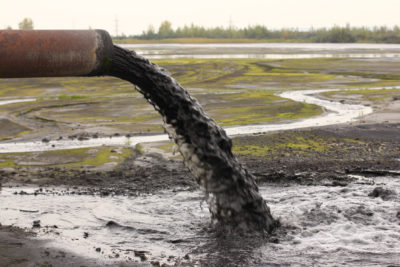Ministers have agreed with the majority of the recommendations in the Environmental Audit Committee (EAC) report on water quality in rivers, however certain proposals were rejected over concerns they could stunt housebuilding targets.
The government and the water industry regulator Ofwat say that the next water industry price review process has needed to prioritise long term investment in the sewerage network, to take better account for natural capital and to increase the use of nature-based solutions. This paves the way for a major upgrade of England’s overloaded Victorian sewerage infrastructure.
The government says that it is committed to improving monitoring of water quality, through measures introduced to the Environment Act. Ministers support industry-funded research to understand better the chemical cocktail coursing through waterways as a critical pre-cursor to cleaning up UK rivers.
Following widespread criticism from members of the public, campaigners and parliamentarians, water companies have now committed to improve transparency around the industry’s use of storm overflows. Improved overflow monitoring is essential to transforming understanding the frequency and nature of discharges of sewage from combined sewer overflows.
However minister rejected the EAC’s recommendation to require industry to install volume monitors as well, so as to gauge the amount of untreated or partially treated sewage being discharged.
The report concluded that improved enforcement was crucial to deter unpermitted sewage discharges. Following EAC’s recommendations, the Environment Agency is reviewing how it audits the self-monitoring of wastewater treatment works by water companies.
The Environment Agency (EA) also plays a significant role in enforcement. The committee welcomes the increased funding being provided to the EA for enforcement, but is concerned that the extra inspectors for which funding has been provided may not have sufficient powers to enforce action against permit breaches, and that the additional posts fall short of what is required in terms of site visits.
EAC is concerned that the government has rejected its recommendations around agricultural pollution, despite figures showing that diffuse pollution from agricultural sources prevents 40 per cent of rivers and other water bodies from achieving good ecological status. The response reveals government concerns that nutrient neutrality policies could stall housebuilding, which the EAC recognises is a potentially conflicting priority where a balance needs to be struck. The committee say urgent work is required by Natural England to find a framework for local authorities to be able to provide clarity of the mitigation measures necessary for developers to build without exacerbating risks to river pollution.
Ministers have also rejected the EAC’s call for a presumption against planning permission for new intensive livestock units in areas that are suffering from excessive nutrient pollution, such as in the Wye Valley.
The committee says it “looks forward to” ministerial responses to the government consultations on fats, oils and greases, and on wet wipes and other sanitary products.
However the government has rejected its recommendation to including voluntary targets to reduce microplastic pollution from textiles in its Textiles 2030 clothing sustainability scheme.
Committee chair, Philip Dunne MP, said: “Improving water quality in our rivers is not an easy task and will not be solved overnight. In 2021, sewage poured into our waterways over 370,000 times: this is simply unacceptable. But the government has clearly been listening and Ministers have shown a determination to engage constructively with the committee’s recommendations.
“The government response to our report is broadly positive, and I welcome moves to improve significantly the amount and analysis of monitoring, to hold water companies to account and better understand the dangerous chemical cocktail coursing through our waterways. Enforcement of permit conditions is crucial, and the committee will in due course be examining the capacity of the relevant agencies to deliver effective environmental protection in this area. I look forward to evaluating the further action on effective monitoring of sewage discharges promised at the next update of the government’s 25 Year Environment Plan.
“We welcome the increased focus by Ministers on prioritising water quality improvement through guidance to Ofwat in its Strategic Policy Statement, the recent consultation on water quality targets and sewage overflow measures and the latest iterations of WINEP and WISER guidance to inform the environmental improvements water companies are required to deliver in the next price review period.
“This is a critical period for transforming human impact on our waterways and I welcome the way in which the government is engaging and seeking to put right the indifference of successive previous administrations. The committee will continue to hold the government, its arms-length bodies and the water companies to account as they implement these plans to improve the water quality in England’s rivers.”












